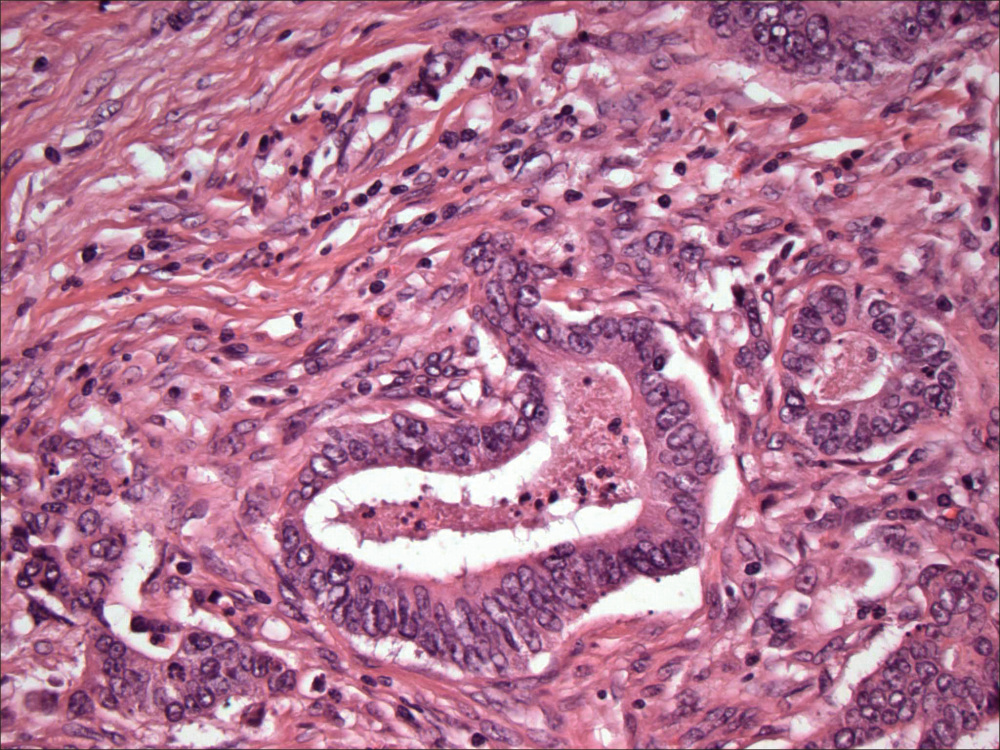- Abdominal pain, cramps, and changes in bowel habits are symptoms associated with both colorectal cancer and irritable bowel syndrome.
- Colorectal cancer may have additional symptoms of blood in the stool, weight loss, fatigue, and a feeling of incomplete bowel movements.
- Early detection of colon cancer through screening can be key to better outcomes and survival.
Irritable bowel syndrome (IBS) or cancer: knowing the difference
Irritable bowel syndrome (IBS) is a chronic disorder in which the large intestine undergoes abnormal contractions, producing abdominal pain, cramps, diarrhea, constipation, or a mix of these symptoms. (It is a different condition from inflammatory bowel disease (IBD), which most often occurs as ulcerative colitis or Crohn’s disease.)
Colorectal cancer, which involves the uncontrolled growth of cells in a portion of the large intestine called the colon or rectum, can produce similar symptoms, so it is important to be aware of the differences between the two conditions.
What are the early warning signs of colorectal cancer?
In its early stages, colorectal cancer often doesn’t produce any symptoms, but as the cancer grows and penetrates the walls of the colon, a variety of symptoms may arise, including:
- Changes in bowel habits
- Vomiting, diarrhea, constipation, or feeling that the bowel does not fully empty
- Stools that are narrower than usual
- Frequent gas pains, bloating, fullness, or cramps
- Weight loss for unknown reasons
- Fatigue
- Vomiting
- Anemia (low red blood cell count)
Because IBS, colorectal cancer, and other digestive disorders, such as IBD, can produce similar symptoms, it’s a good idea to consult your doctor or primary care provider as soon as possible if you experience these symptoms, especially if they last more than a few days.
What does colon cancer stool look like?
Blood (either bright red or very dark) in the stool can be a symptom of colon cancer, but can also indicate other medical issues. A doctor will be able to determine the cause of any health issues.
Is there a relationship between excessive gas and colon cancer?
Frequent gas pains, bloating, fullness, or cramps can also be a symptom of colon cancer, but this can also be an indication of another medical issue. A doctor will be able to determine the cause of any health issues.
Screening for colorectal cancer
While colorectal cancer often doesn’t produce symptoms until it has grown and spread, screening tests — including fecal occult blood testing, colonoscopies, and sigmoidoscopies — can detect the disease at its earliest stages. The American Cancer Society (ACS) recommends regular colorectal cancer screening starting at age 45 for people at average risk. People with a family history of the disease or who have certain other risk factors should talk to their physician about starting screening at a younger age, the ACS advises.

When colorectal cancer is found early, before it spreads, the five-year survival rate is 92% — meaning more than nine out of 10 people who are diagnosed with an early stage of the disease, and treated, are alive five years later. Survival rates drop as the cancer becomes more advanced through the colon or rectum and surrounding lymph nodes, or if it spreads outside the colon or rectum.
To diagnose colorectal cancer, doctors may order blood tests as well as X-ray or CT scans. If colorectal cancer is strongly suspected, a colonoscopy is likely to be performed to view the lining of the colon or rectum and collect small samples of abnormal tissue for testing.
Can IBS lead to colorectal cancer?
People with IBS need not be concerned that the condition increases their chances of developing colorectal cancer. A 2010 study by researchers at the University of Michigan found that patients with IBS are at no greater risk of having intestinal polyps (growths that can be a precursor to colorectal cancer), colorectal cancer, or inflammatory bowel diseases such as ulcerative colitis and Crohn’s disease than healthy people undergoing colonoscopies. The research indicates that colonoscopies are unnecessary for patients with IBS unless they show other signs specifically associated with colorectal cancer, such as bleeding from the gastrointestinal tract, weight loss, or anemia.
About the Medical Reviewer

Dr. Meyerhardt received his MD from Yale School of Medicine in 1997. He completed a residency in internal medicine at Beth Israel Deaconness Medical Center, in Boston, followed by a medical oncology fellowship at DFCI. He joined the Gastrointestinal Cancer Center at DFCI in 2002..

I’m pretty sure I have IBS my sister (died July 2019) was 95 yrs old and she had it too. I hate how much time I have to go sit in the bathroom, I’m afraid to go too far from home (bathroom) and I don’t like using public rest rooms. It’s so aggrievating to have to wear sweat pants (because easier to get off) NOT my good slacks or jeans, I’m so sick of it!! The only thing I can even think of that bought it on years ago (thank goodness it was after I retired from my job of 28 yrs) was my doctor recommends ”
” for my heart beating fast. It helped my heart reythm slow down, but I read later after taking it for a few years off and on, that it could cause diaherra. By than I had had the IBS symptoms.